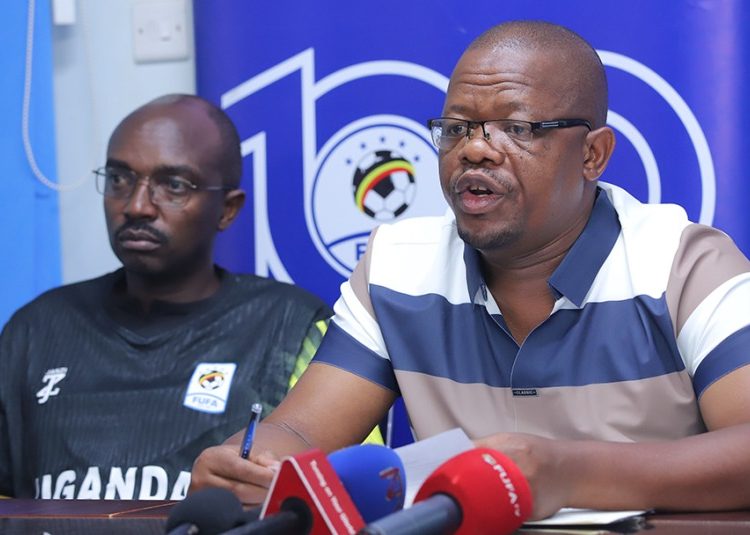When history recalls this chapter of Ugandan football, it will not be FUFA’s grand plans or its circulars that stand out, it will be the defiance of the fans, the unshakable stand of Vipers SC and their president Dr. Lawrence Mulindwa, and the relentless scrutiny of a section of the Ugandan media that saved the beautiful game from a reckless experiment.
On Saturday, the Federation of Uganda Football Associations (FUFA) finally bowed to pressure and suspended its controversial Uganda Premier League (UPL) reforms, an embarrassing but deserved climbdown after months of arrogance, miscommunication, and administrative bullying.
FUFA President Moses Hashim Magogo, speaking after an emergency meeting at Mengo, tried to spin the U-turn as a result of “consultations with stakeholders.” But let’s call it what it really was; a surrender forced by sheer resistance from those who refused to let the federation hijack the league in the name of “modernization.”
A Reform Built on Sand
From the start, the so-called multi-phase league format, first introduced in July and formalized through Circular 1202, was riddled with confusion.
It promised progress but delivered chaos. Clubs were blindsided, fixtures were drawn before consent was secured, and FUFA’s threats to withdraw Shs 3.4 billion in league funding if clubs resisted were nothing short of blackmail.
Instead of consultation, FUFA relied on coercion. Instead of transparency, it pushed propaganda. And when the backlash grew, its leadership resorted to blame-shifting, accusing clubs and fans of “failing to understand the vision.”
That “vision,” it turns out, was nothing more than administrative vanity dressed up as reform.
The People Who Fought Back
Ugandan football’s saving grace came not from Mengo but from the terraces, the dressing rooms, and the press rooms.
Fans across the country organized boycotts, refusing to show up for what they rightly called “a circus.” The spirit of resistance was loud and unified, ordinary supporters reminding FUFA that football belongs to the people, not the boardrooms.
At the forefront of that resistance stood Vipers SC and their president, Dr. Lawrence Mulindwa. When the defending champions refused to honor their fixture against Kitara FC on October 2, they did more than skip a game, they triggered a movement.
Mulindwa’s bold declaration that Vipers would not participate in a “disorganized and disrespectful league” struck a chord with players, fans, and fellow administrators who had been quietly seething.
Other clubs soon found their voices, and even sections of the media, often accused of staying neutral, refused to play along with FUFA’s narrative.
Outlets, analysts, and journalists spoke out, exposing the inconsistencies, questioning the motives, and amplifying the frustration of those being ignored.
FUFA’s Shameful Display
By the time FUFA realized the damage, it was too late. Attendance had plummeted, credibility was in tatters, and the league’s unity, something painstakingly built over the years, lay in ruins.
The federation’s credibility took another hit when it published fixtures for a season that was already falling apart.
It is telling that FUFA’s eventual retreat was not framed as an apology but as a “temporary suspension.” The statement still carried undertones of superiority, as though the federation was doing everyone a favor by listening.
That tone alone speaks volumes about the culture of leadership within FUFA: defensive, dismissive, and detached from the realities of the game it claims to govern.
A Lesson in Accountability
The suspension of the new league structure is not just a victory for common sense, it is a reminder that power in Ugandan football does not rest solely in Mengo.
It rests in the collective will of the people who love the game: the clubs, the players, the fans, and the independent media who refuse to be silenced.
FUFA may want to rebrand this moment as a “pause for reflection,” but make no mistake, this was a forced retreat. And it should serve as a wake-up call to the federation’s leadership that the days of unilateral decision-making are over.
If FUFA truly wants to modernize Ugandan football, it must first learn humility. It must listen, not dictate; consult, not coerce; and most importantly, respect the very people who make the sport what it is.
Because this time, Ugandan football didn’t need FUFA to save it, it needed saving from FUFA.





























